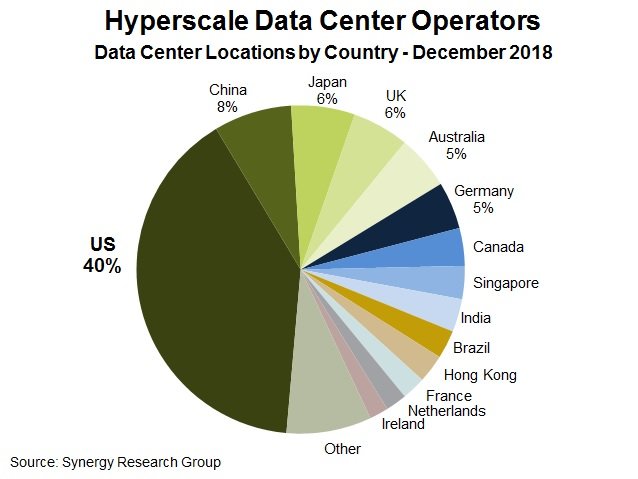Africa has made great strides in getting connected to the internet. There are 453,329,534 internet users, which translates to an internet penetration of 32.5%. This figure is steadily growing, and we are steadily shaking off the tag of ‘the dark continent.’
But where is Africa’s data stored and processed? Many websites registered under Africa’s ccTLD, that is names like .ke, .ng, .tz, .za etc, are hosted in Europe and America. This is besides a similar number of other gTLD domains such as .com and .net, which are owned by Africans, but hosted abroad too. This means that many of the websites that are being accessed by Africans, are actually located in other continents.
One can see why most of these sites are located elsewhere. As of December 2018, US accounted for 40% of all Data Centers in the world. Africa does not rank here, and one can conclude that the number of Data Center is way much smaller compared to other continents. This is why many African sites will continue to be hosted in other continents. The cost of hosting also plays a major role with collocation in African Data Centers costing more than double the cost in the US and Europe.

Does this pose a problem? Yes, there is a big problem. The two main problems include capital flight, and latency. Africans end up spending billions of money on hosting abroad, money which could impact the economy if injected into respective countries. It has been reported that Nigerians alone spend about 60 m USD (6 billion KES) on paying for web hosting abroad. Other African countries follow a similar trend, and the money that could be building Data Centers in Africa, improving terrestrial fiber networks or even building local companies, is being pumped into developed countries.
The second problem involves latency. Although connectivity in Africa has greatly improved with several submarine fiber cables going around Africa and a vast network of terrestrial fiber, one of the main bottleneck that impacts user experience is latency. Latency refers to the time it takes for data to be transferred from the server to the user, and this time is quite high due to a physical distance between users in Africa, and servers in other continents. This is because it takes about 60 times longer to access data from Europe, than it takes when data is locally hosted. If you are in Kenya, you can test this by accessing the eCitizen website which is hosted locally, any other website that is hosted abroad.
Of course, a difference of less than a second does not hurt anyone, many think. But, this is not true. A lot of man-hours are wasted while people wait for pages to load. Money is spent on leasing international links to deliver this data, and once the world makes the leap to 5G where bandwidth will not be the limit, latency will be bottleneck. We must reverse this now.



What do you think?